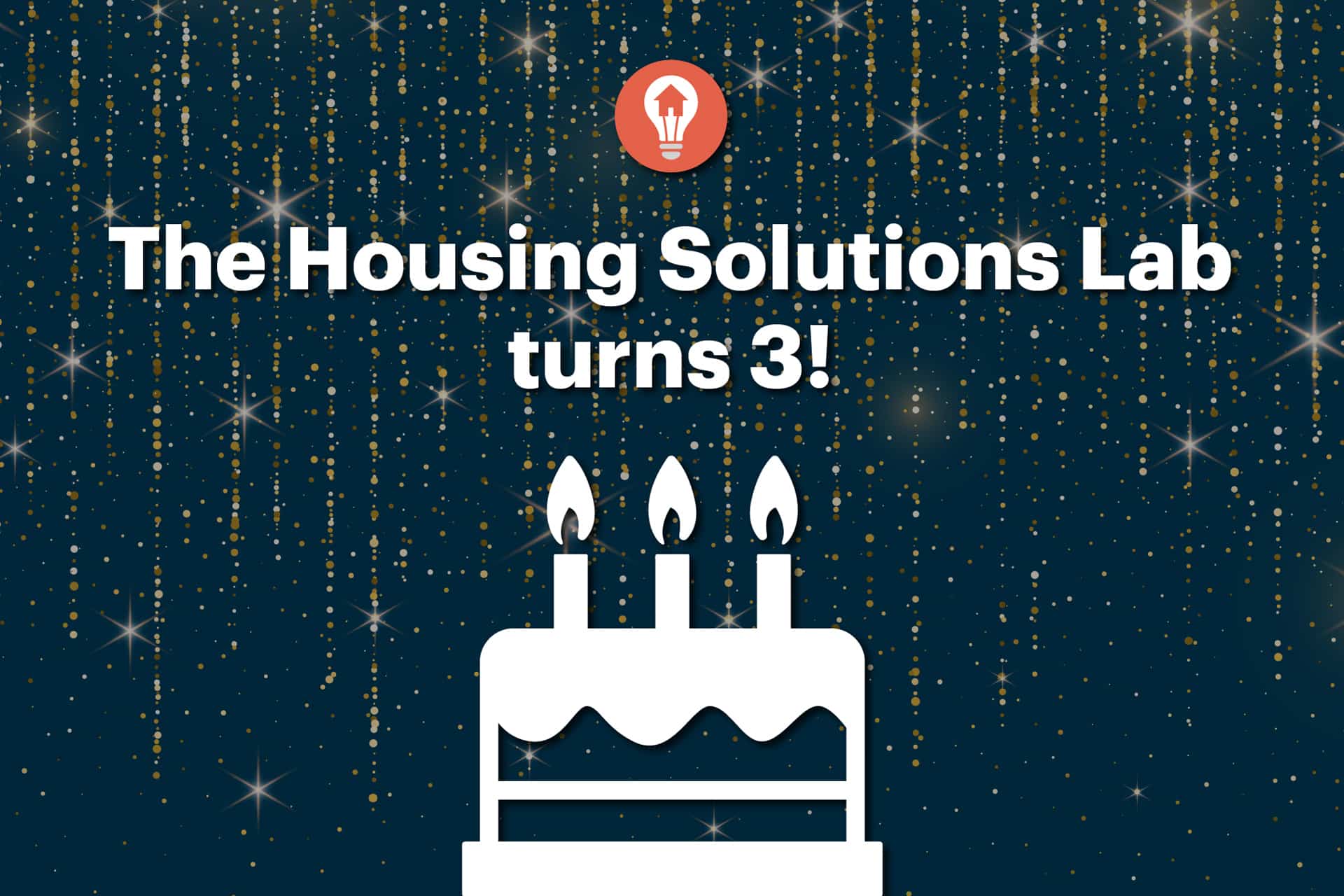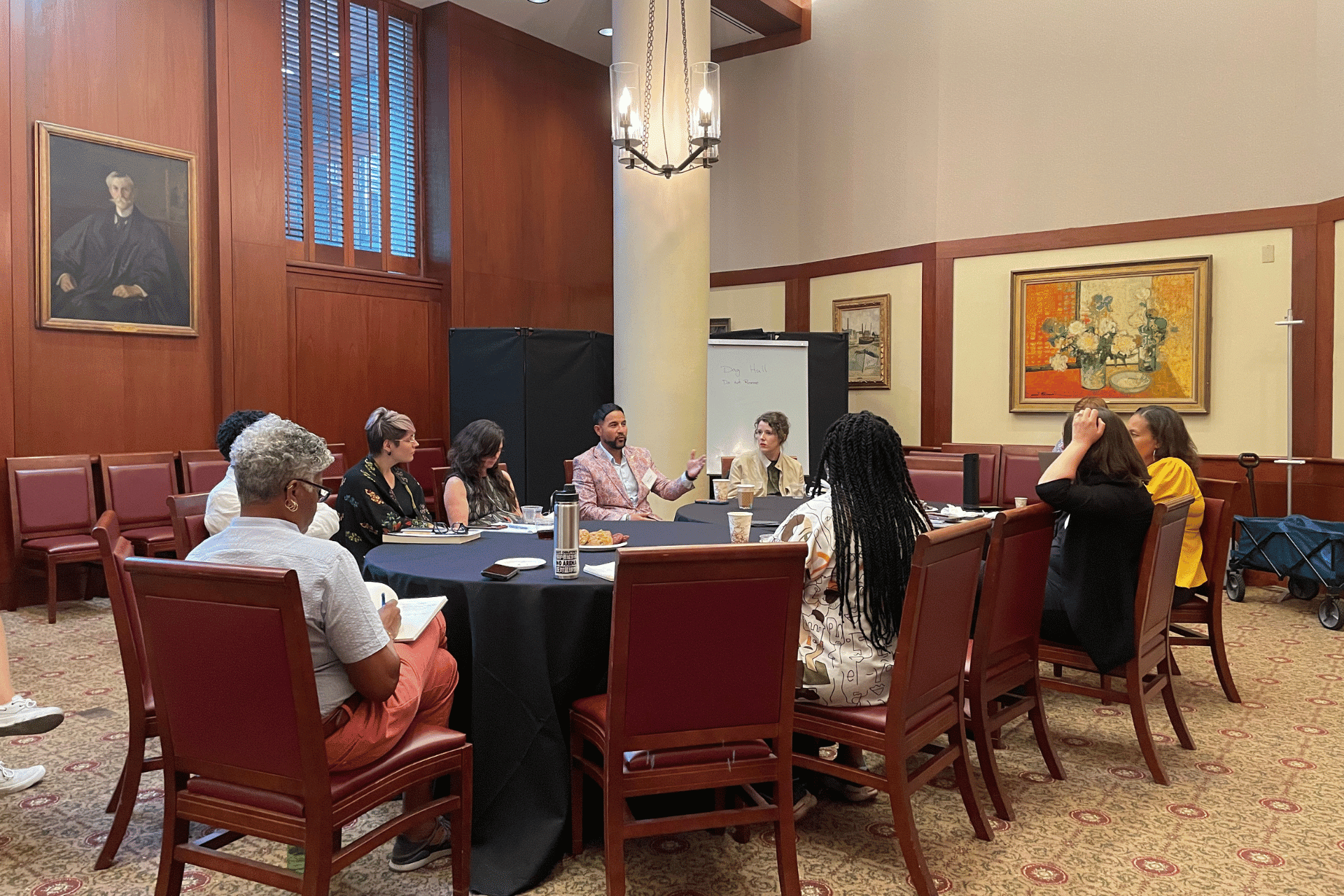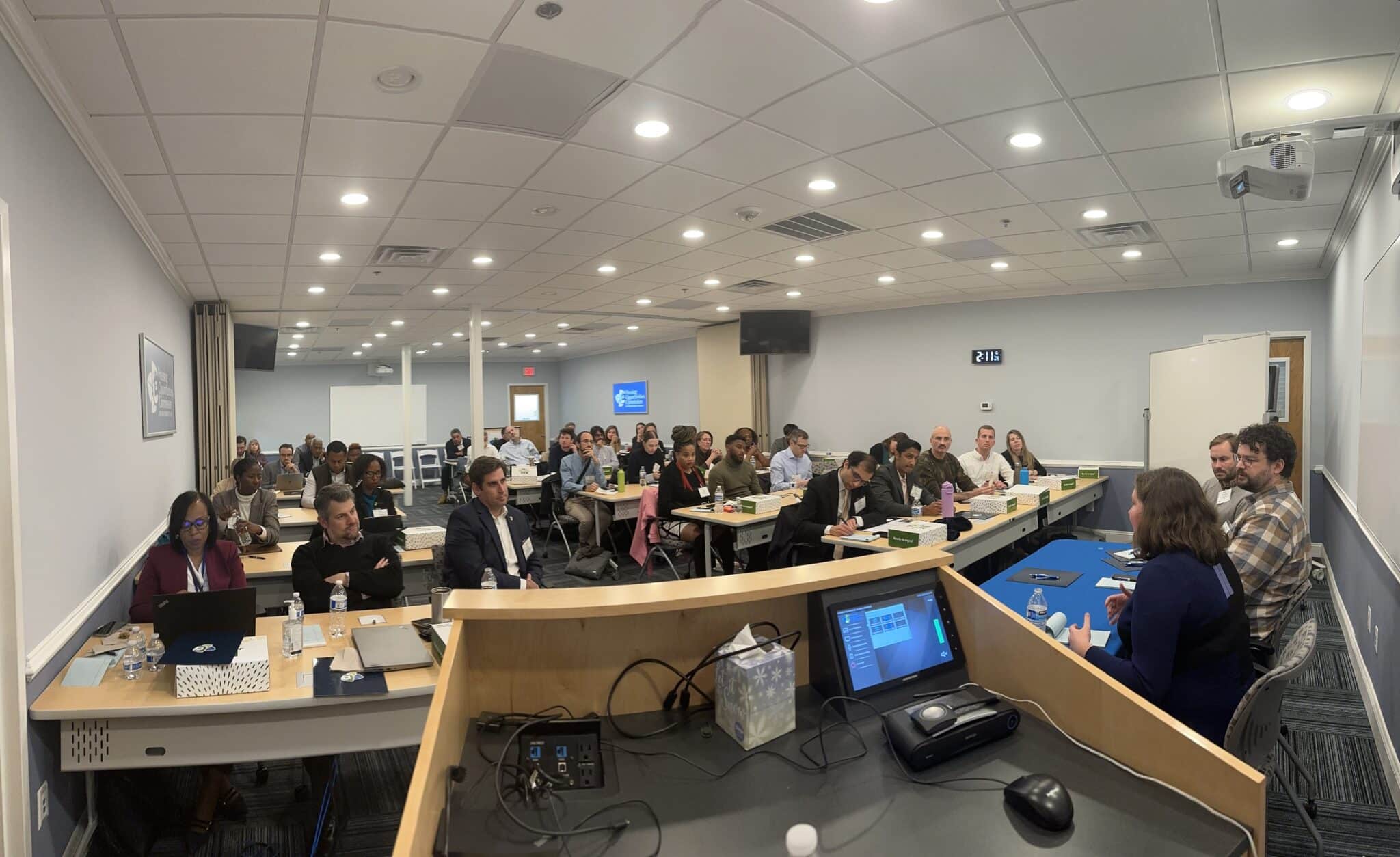
July 1, 2024
As we celebrate the Housing Solutions Lab’s third anniversary this month, we are capping off a busy year of working with cities to advance more equitable and effective housing policies. Thank you to our primary funder, the Robert Wood Johnson Foundation, our steering committee, partner organizations, and city stakeholders for their continued partnership and support.
Please read more about this year’s highlights below and contact us with any questions, ideas, or interest in collaborating with the Lab.
City engagement
Peer learning
Cities across the country increasingly face housing affordability challenges, and demand for the Lab’s peer learning opportunities continues to grow. This year, we conducted our third set of cohorts of the Housing Solutions Lab Peer Network and Virtual Workshop, working with 18 city teams on a range of policy issues. These included developing affordable housing and preventing displacement, establishing rental registries and short-term rental regulations, and determining how commercial-to-residential conversions can help improve housing shortages. We also helped cities address strategic challenges, including partnering with Hester Street to help local housing leaders reimagine their community engagement strategies.
To support cities in building more equitable home repair programs, we launched our first Home Repair Network, bringing together city leaders of local government home repair programs for action planning and innovation.

City and nonprofit leaders participate in a breakout session at the Lab’s Advancing Equity Through Home Repair convening in June 2024. Image credit: Lab staff
Technical assistance
Our city engagement work is now taking us to the field. Most recently, we visited Jefferson City, MO, to help the Capital City Housing Taskforce facilitate a local housing strategy workshop with city housing officials and stakeholders.
We’re also supporting cities through Ask the Lab, our online technical assistance tool. This year, we’ve responded to over 100 inquiries, providing policy and data guidance on a variety of issues, including inclusionary zoning, eviction prevention, and mixed-income housing.
Cross-sector partnerships
A cornerstone of the Lab is supporting partnerships between housing and other relevant sectors, in order to promote healthy and equitable communities. To help foster collaboration between local housing and health leaders, this year we awarded three catalyst grants for local leaders to implement projects on shared priority issues. Local projects are focused on establishing a healthy housing registry, improving reentry services for persons with mental health challenges, and coordinating data to improve outcomes for homeless high utilizers of health care services.
Policy and data
Drawing on our work with cities, we developed various new resources for our online policy toolkit, Local Housing Solutions (LHS). More than 20,000 users visit LHS each month. This year’s featured LHS resources include:
We also launched our popular Data Talk Series to support housing leaders in developing local data capacity. The 45-minute webinars highlight key housing topics and spotlight local leaders who are applying data to city housing challenges.
Above: A video from the Lab’s Data Talks Series.
Research and evaluation
The Lab’s research portfolio continues to grow as we partner with cities to examine local policies and programs. This year, we launched new research with the Flagstone Initiative to study the impact of rent-splitting on rent delinquency, turnover, evictions, and other tenant outcomes. With support from the State of Rhode Island, we are conducting new research on the feasibility of public development and ownership models for affordable housing. In collaboration with two housing providers, we also launched the Bay Area Thriving Families study to assess whether cash payments can help improve housing stability for families exiting rapid re-housing. In addition, we launched a national community of practice with public housing agency leaders to identify new research needs and share insights.
To help develop local research capacity, we awarded our second round of innovation grants to researchers in small and midsize cities. The diverse studies examine policy questions related to evictions, home repairs, source of income discrimination, and community engagement in zoning reform.
To help build evidence about effective local housing policy, we also collaborated with the U.S. Department of Housing and Urban Development (HUD) and researchers from the Center on Budget and Policy Priorities, the Poverty & Race Research Action Council (PRRAC), and the Urban Institute to develop research agendas on key policy issues, including source of income discrimination and cash assistance.

Above: Members of the Lab joined city, state, and housing authority leaders at a day-long convening at the headquarters of the Housing Opportunities Commission of Montgomery County, MD. Image credit: Center for Public Enterprise.
Looking ahead
As housing affordability and disparities continue to challenge cities throughout the nation, the Lab is committed to providing evidence-based, practical, and timely support for city leaders. Looking ahead, we will draw on lessons learned to refine and expand our work. This includes:
- Deepening our efforts to help cities advance racial equity through local housing policy
- Supporting housing officials to collaborate with the climate, health, and criminal justice sectors
- Helping localities navigate fundamental shifts in state and federal housing policy
- Partnering with cities on research that builds the evidence base for equitable local housing policy
Stay tuned to Lab Notes for updates about our work and opportunities to collaborate. For policy, data, or research support, please contact us.
Listen to our Peer Cities Playlist to hear music from some of the cities in our Peer Networks.


